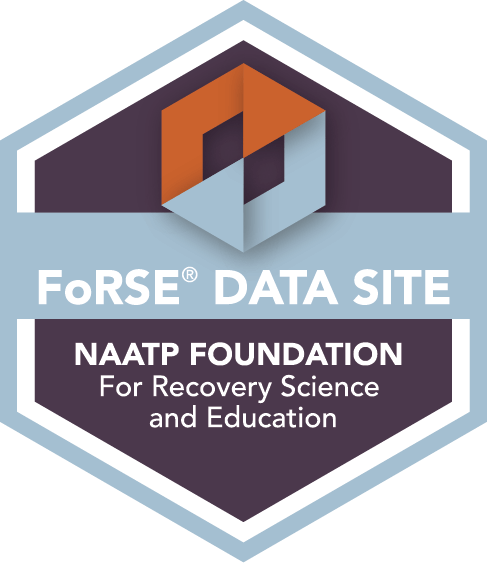
Fentanyl addiction has become a major public health crisis in Illinois, with rising overdose rates and devastating effects on individuals and families. As one of the most potent opioids, fentanyl is highly addictive and can lead to severe dependence, life-threatening withdrawal symptoms, and fatal overdoses.
Seeking professional treatment is crucial for those struggling with fentanyl addiction. Our addiction treatment programs in Illinois offer a range of comprehensive treatment options, including medical detox, medication-assisted treatment (MAT), behavioral therapy, and dual diagnosis care to address both addiction and underlying mental health conditions.
Learn more about fentanyl, including what it is, symptoms of addiction, and its effects, and how our fentanyl detox and treatment center in Illinois can help you or a loved one sustain recovery.

Fentanyl: The Deadliest Opioid
Fentanyl is one of the most dangerous opioids due to its extreme potency—up to 50 times stronger than heroin and 100 times more potent than morphine. Even small doses can lead to severe addiction, painful withdrawal, and fatal overdoses.
How Does Fentanyl Affect the Brain and Body?
Additionally, fentanyl abuse weakens the immune system, damages organs, and increases susceptibility to mental health disorders. Dual diagnosis treatment can address any mental health disorders that may co-occur with fentanyl addiction.


Signs and Symptoms of Fentanyl Addiction
- Compulsive drug-seeking behavior despite negative consequences
- Doctor shopping or forging prescriptions to obtain fentanyl
- Increased secrecy or isolation from family and friends
- Neglecting responsibilities at work, school, or home
- Engaging in risky behaviors (e.g., driving under the influence, stealing to obtain drugs)
- Loss of interest in hobbies or previously enjoyed activities
- Extreme drowsiness or nodding off
- Pinpoint pupils (constricted, tiny pupils)
- Slow or shallow breathing (respiratory depression)
- Slurred speech and confusion
- Nausea, vomiting, and constipation
- Weight loss and poor appetite
- Track marks or skin infections (if injected)
- Intense cravings for fentanyl
- Mood swings, anxiety, or depression
- Paranoia or hallucinations in severe cases
- Memory problems and difficulty concentrating
- Irritability and agitation
- Severe muscle and bone pain
- Chills, sweating, and fever-like symptoms
- Nausea, vomiting, and diarrhea
- Intense cravings and anxiety
- Restlessness and insomnia
Causes and Risk Factors of Fentanyl Abuse
- Prescription Opioid Use: Many individuals start using fentanyl after being prescribed opioids for pain management and later develop dependence.
- Self-Medication: Some people misuse fentanyl to cope with mental health issues such as depression, anxiety, or PTSD.
- Increased Tolerance: Over time, individuals require higher doses to achieve the same effects, leading to misuse and addiction.
- Peer Pressure and Social Influence: Exposure to drug use in social circles increases the likelihood of fentanyl abuse.
- Accessibility of Illicit Fentanyl: Illegally manufactured fentanyl, often mixed with other drugs like heroin or counterfeit pills, is widely available and highly addictive.
- History of Substance Abuse: Those with past drug or alcohol addiction are more vulnerable..
- Chronic Pain Conditions: Individuals prescribed opioids for long-term pain are at higher risk of dependence.
- Mental Health Disorders: Depression, anxiety, PTSD, and other mental illnesses increase susceptibility.
- Genetics and Family History: A genetic predisposition to addiction can play a significant role.
- Environmental Factors: Exposure to drug use, trauma, or high-stress environments can contribute to fentanyl abuse.
- Lack of Support Systems: Social isolation or a lack of family and community support can lead to self-medication with opioids.
Fentanyl abuse is a serious and life-threatening condition, but treatment and recovery are possible with professional help. Our intervention services in Illinois can help prevent long-term damage and overdose risks.
Insurance Verification




Fentanyl and Mental Illness
The relationship between fentanyl use and mental illness is bidirectional—those with untreated mental health conditions are at higher risk of substance use disorders, while fentanyl abuse can trigger or intensify psychiatric symptoms. The effects of fentanyl, including extreme euphoria followed by deep sedation, can mask underlying mental health issues, making proper diagnosis and treatment more challenging.
Effective treatment for individuals with fentanyl addiction and co-occurring mental health disorders requires an integrated approach. This includes medical detox, cognitive behavioral therapy (CBT), medication-assisted treatment (MAT), and comprehensive mental health care. Addressing both conditions simultaneously is essential for long-term recovery, as treating one without the other can lead to relapse and worsening symptoms. Dual diagnosis treatment centers specialize in providing the support and resources needed to help individuals regain stability and improve their overall well-being.

Fentanyl Addiction Treatment
Our comprehensive treatment approach includes:
- Medical Detox: A supervised detox program to manage withdrawal symptoms safely and comfortably.
- Medication-Assisted Treatment (MAT): FDA-approved medications like Suboxone or Methadone may be used to reduce cravings and prevent relapse.
- Individual and Group Therapy: Evidence-based therapies such as Cognitive Behavioral Therapy (CBT) and Dialectical Behavior Therapy (DBT) help address the underlying causes of addiction.
- Dual Diagnosis Treatment: For those struggling with both fentanyl addiction and co-occurring mental health disorders, we offer integrated care to treat both conditions simultaneously
- Relapse Prevention and Aftercare: We equip clients with coping strategies, peer support, and long-term recovery planning to maintain sobriety beyond treatment.
At Northern Illinois Recovery, our goal is to provide personalized, compassionate care to help individuals break free from fentanyl addiction and reclaim their lives. We also offer specialized adolescent residential treatment centers in Illinois, providing young people with a safe, supportive environment to begin their recovery journey. If you or a loved one is struggling, reach out today to start the path toward healing and lasting wellness.

Fentanyl Treatment Programs We Offer
- Medical Detoxification
- Residential/Inpatient Treatment
- Partial Hospitalization Program (PHP)
- Intensive Outpatient Program (IOP)
- Dual Diagnosis Treatment
- Relapse Prevention Planning
- Aftercare
Fentanyl Treatment Center FAQs
At Northern Illinois Recovery Center’s fentanyl treatment center, we use medications such as Suboxone or Methadone to treat withdrawal symptoms during the detox process. Each individual is different, which is why we perform an initial assessment to determine eligibility for MAT. During this assessment, you can also discuss the specific medications with our professionals.
The common signs of a Fentanyl overdose are lack of or little consciousness, slowed breathing, no response to stimulation, and constricted pupils. If you recognize these signs, call 911 immediately. If you have access to Naloxone, also known by its brand name Narcan, administering this medication can be lifesaving.
Fentanyl addiction is highly dangerous and can lead to fatal overdoses. Seeking professional treatment for drug abuse and addiction in Illinois is essential for long-term recovery and overall well-being. Long-term side effects include:
- Severe physical dependence and addiction
- Chronic respiratory issues
- Weakened immune system
- Mental health disorders (depression, anxiety, paranoia)
- Cognitive impairment (memory loss, difficulty concentrating)
- Heart problems, including irregular heartbeat
- Increased risk of overdose and death
The length of detox can depend on several factors unique to the individual. Generally, patients experience the peak withdrawal symptoms within 24 to 72 hours after starting detox. From there, it may take several more days to stop the symptoms entirely. During this process, we support our patients with MAT and therapy. Medically supervised detox, like the program Northern Illinois Recovery Center offers, is generally the safest option for fentanyl detox.
Most insurances, including Medicare and Medicaid plans, cover substance abuse treatment. Your coverage will depend on your specific provider. At Northern Illinois Recovery Center, we’re dedicated to making addiction treatment accessible. Contact our admissions team to verify your insurance coverage and explore available payment options.

Recovery is Possible at Our Fentanyl Treatment Center

Fentanyl addiction is a serious and life-threatening condition, but recovery is possible with the right treatment and support. At Northern Illinois Recovery Center, we provide compassionate, comprehensive care to help individuals reclaim their lives from addiction. If you or a loved one needs fentanyl addiction treatment, don’t wait—reach out today and take the first step toward lasting recovery.
If you or someone you know is battling fentanyl addiction, contact us today for immediate assistance. The road to recovery starts with a single step, and help is available to guide you toward a healthier, substance-free life.





